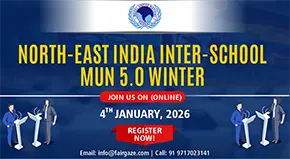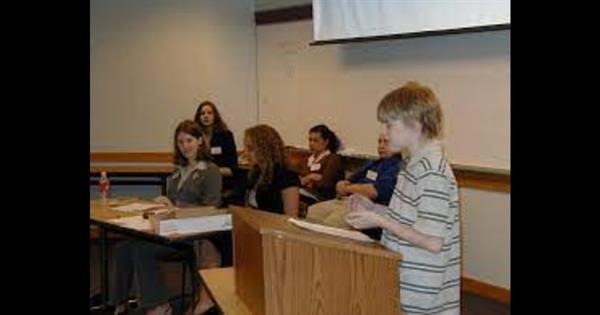
National Model United Nations: A Platform for Multiculturalism
Model United Nations (MUN) is a platform that actively encourages multiculturalism, understanding, and cooperation among young people.
This blog will examine the ways in which Regional MUN pave the way for a more promising and peaceful future for the global community.
Cultural Recognition and Exchange
During National Model United Nations conferences, students from all cultural backgrounds come together. Delegates are representatives of different nations who promote their particular points of view.
This variety promotes a vibrant cross-cultural dialogue. Delegates acquire a profound understanding of the customs, traditions, and viewpoints of their fellow delegates in addition to learning about international politics and diplomacy. The core of multiculturalism is instilled in them: to value and cherish diversity.
Smashing Preconceptions
Regional MUN capacity to confront and dispel preconceptions is among its most important features. Conference attendees frequently bring preconceived views about foreign cultures with them. But through conversations, compromises, and exchanges of ideas, people find that these preconceptions are frequently false.
This insight opens the door to a more understanding and inclusive worldview. Young people who take part in MUN learn to see past preconceptions and value the distinctive features of every culture.
Cultural Secrecy
Diplomacy and negotiation are given a lot of importance in Model UN. It is the responsibility of delegates to identify points of agreement and work towards global issue solutions. They frequently use cultural aspects in their agreements during this process.
This cultural diplomacy fosters an environment of respect and collaboration between people while also enhancing their awareness of the globe. Delegates forge closer and more fruitful diplomatic ties when they acknowledge and appreciate cultural quirks.
Proficiency in Language and Communication
Delegates to Regional MUN must be able to interact with people of different language backgrounds. The majority of conference attendees do not speak English as their first language, despite the language being used extensively.
Delegates are challenged by this language barrier to sharpen their language and communication abilities. These abilities are very helpful in advancing global understanding and multiculturalism.
Crisis Resolution
In crisis committees at some National Model United Nations, delegates deal with unforeseen world events. Delegates are forced by these simulations to think quickly on their feet and react creatively and cooperatively in times of crisis.
Delegates are frequently forced to deal with cultural, social, and economic issues in crisis situations, which exposes them to the complexity of other cultures. This is an amazing event that will help people appreciate diversity around the world on a deeper level.
Encouraging Empathy and Tolerance
Regional MUN promotes tolerance and empathy. Delegates learn about the difficulties faced by other countries and peoples through the simulation of world wars and crises.
They develop empathy as a result of this first-hand knowledge, which increases their capacity to comprehend the challenges and goals of others. Empathy is a vital component of multiculturalism because it facilitates stronger connections between people.
Global Friendships and Networking
MUN conferences are great places to make friends and network on a worldwide scale. Delegates and people from various ethnic origins frequently develop enduring relationships.
These friendships allow young people to stay in touch with folks from all over the world even after the conference. Because they forge intimate bonds across cultural divides, these kinds of interactions are vital to the advancement of diversity.
Motivating Upcoming World Citizens
Possibly the most important thing MUN has done to advance multiculturalism is to encourage young people to become future global citizens.
MUN delegates are more likely to take part in initiatives that support multiculturalism both locally and globally as they get more immersed in international affairs, have diplomatic conversations, and learn about the complexity of the globe.
National Model UN is more than just a school project—it's a life-changing opportunity that actively advances multiculturalism and intercultural understanding.
Through language proficiency, empathy, diplomacy, and cultural interchange, MUN prepares young people to function in the complicated, multicultural world we live in.
It creates an atmosphere that values difference, dispels myths, and strengthens bonds between people. With MUN's increasing prominence, our networked world is going to have a far better and more peaceful future.
Must Read: Regional MUN How Can You Lead a Regional MUN Debate?
Related Blogs
-
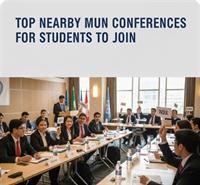
24-Dec-2025 Top Nearby MUN Conferences for Students to Join
-
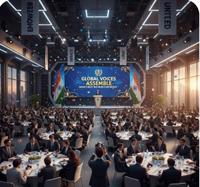
27-Nov-2025 Global Voices Assemble India Next Big MUN Conference
-
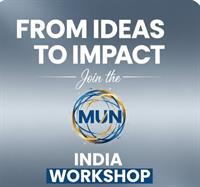
13-Nov-2025 From Ideas to Impact Join the MUN India Workshop
-
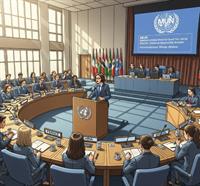
14-Aug-2025 What Is A Conference In MUN?
-
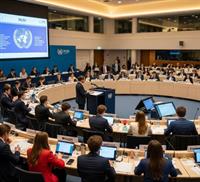
07-Aug-2025 What Does the MUN Do?
-
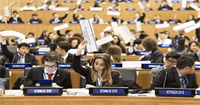
03-Jul-2025 Ways to Research for a Model UN Position Paper
-
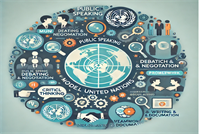
28-Mar-2025 What skills do you gain from Model United Nations?
-
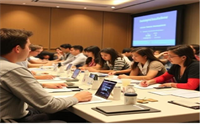
19-Mar-2025 MUN Near Me Upcoming Conferences and How to Register

